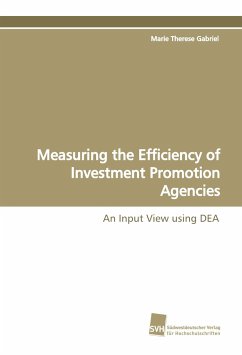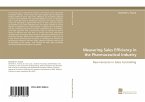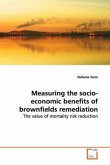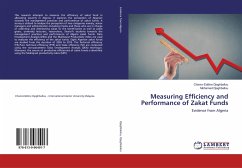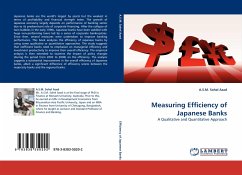Over the past thirty years foreign direct investment (FDI) has become increasingly more important worldwide. In order to respond to the growing competition for FDI many governments have set up special institutions concerned with attracting FDI, so called Investment Promotion Agencies (IPAs). In recent years governments have started to evaluate the effectiveness of their expenses in promotion. Despite the growing importance of IPAs, measured by number and FDI, little is known about the efficiency of IPAs. A direct comparison among each other is not easy to accomplish as each agency uses a different set of investment promotion techniques according to the specific needs of the respective country. The study assesses the efficiency of IPAs that took part in a questionnaire survey conducted in 2005. Results of DEA show that IPAs reach efficient status, yet for different reasons. IPAs from ICs reach efficiency due to their small staff size as well as the number of completed projects andhigh FDI flows, IPAs from DCs are efficient because of their small budgets and the number of completed projects
Bitte wählen Sie Ihr Anliegen aus.
Rechnungen
Retourenschein anfordern
Bestellstatus
Storno

